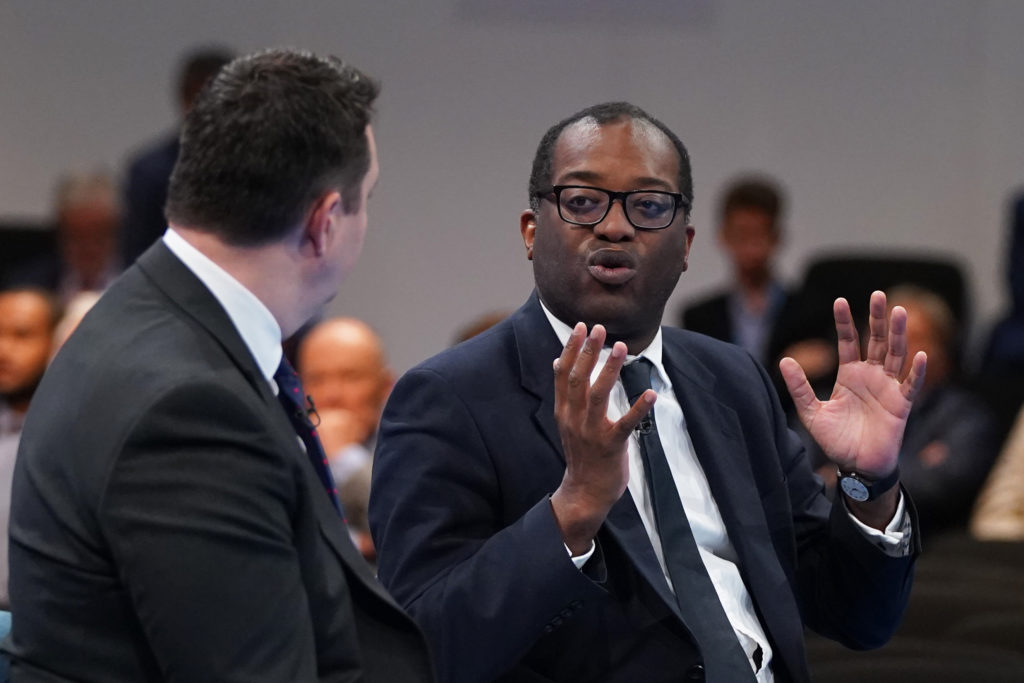Speaking to Trevor Phillips on Sky News at 8.30am this morning, Secretary of State for Energy Kwasi Kwarteng defended his and his government’s actions over the ongoing energy crisis.
Since the start of the year, energy prices have rocketed by 250% and ministers are under pressure to prevent the industry from grinding to a halt. They have been warned that some industrial sectors could have to shut down operations if nothing changes.
Kwarteng once again committed to maintaining the energy price cap, resisting a hike to help suppliers. Some firms have lobbied for an increase to prevent collapses due to the energy crisis.
This commitment means that consumers will be shielded from price rises this winter, but it is expected that customers will be hit with massive hikes in the spring. Asked about these plans, Kwarteng underlined that keeping the cap in place this winter is “non-negotiable for me”.


When pressed, Kwarteng did not set out plans for additional support to struggling businesses and suppliers, despite both businesses and some Conservative MPs calling for further intervention to prevent companies going under.
The chief executive of Together Energy, Paul Richards, said that while he supported a price cap, the current mechanism “is not fit for industry, nor is it fit for customers”. Likewise, Andrew Bridgen MP said he supported further support for energy-intensive industries, adding that “we need … a sustainable long-term energy policy based on diverse sources of supply”.
This news comes after Kwarteng held a meeting with energy industry leaders, including representatives from the paper, glass, cement, lime, ceramics, chemicals and steel industries, this week. The talks were widely reported as being unproductive.
Asked whether people should put on a woolly jumper or another pair of socks to cope with the cold this winter, Kwarteng said that every individuals’ “Cold threshold is very different” and people should do what they feel “comfortable” with.
Kwarteng was also keen to stress that this was a “global problem”, stating that “gas prices, energy prices are at a very high level across the world”.












